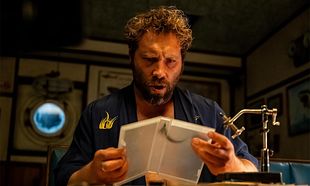Based on true events The Innocents is set in a wintry Poland of 1945. Mathilde (de Laage), a French Red Cross volunteer, is asked to hurry to the Benedictine convent in the Russian zone. A nun is about to give birth… and she's not the only one: victims of rape at the hands of advancing Russian soldiers, the nuns cling on to their faith and duty to Jesus, some refusing to even acknowledge their condition. Mathilde strikes up a relationship with Maria (Buzek), whose wavering beliefs threaten to undermine the authority of the stern Mother Abbess (Kulesza)…
"Faith is twenty-four hours of doubt and one minute of hope." If there’s one line that sums up The Innocents it's this one. Although presented with horror and terror throughout its running time it's the one moment of light that encourages one to persist, to survive, to believe in kindness. There are wider concerns too – like victim shaming, as the nuns are expected to feel disgrace by the abhorrent act that was forced upon them – but Anne Fontaine lets these themes develop and play out without ever overegging it.
With comedies and light dramas on her CV of late (The Girl From Monaco, Adore, Gemma Bovery, Coco Before Chanel), writer-director Fontaine doesn't strike one suited to this dour material. Put those doubts to bed: this is a stirring and engaging drama that deepens as it the story progresses, revealing more and more of the characters and the world they live in. As Mathilde creeps about, smuggling medical supplies and painkillers to the convent, she runs the risk of enraging her own superiors – including lover Samuel (Macainge) – who have a tentative relationship with the surrounding Russians. Meanwhile, doubts arise over the Mother Abbess' claims, who is adamant that the 'scandal' not become public knowledge, that she has found homes for the babies. As Maria and Mathilde grow close, Maria discloses that she had a fiancé before she took her vows and hints that she would welcome a child. Just like it being impossible to guess how far along the nuns are under the thick habit, appearances here can be deceiving.
The climax might be too buoyant for its own good but, going back to the quoted line above, it’s in keeping with its theme and earns its moment of hope after the despair that has gone before.

















































































